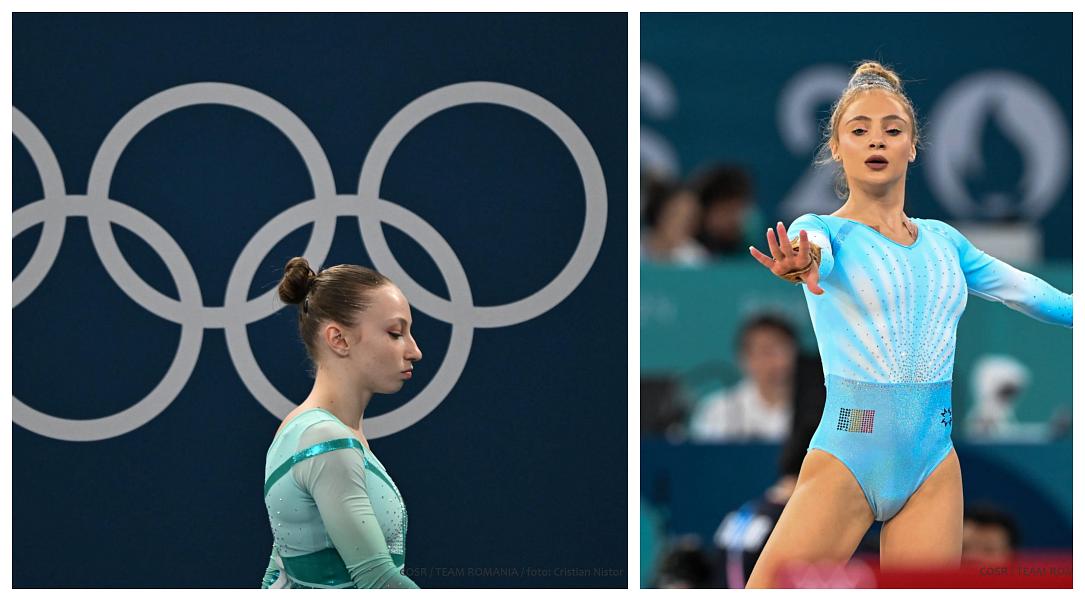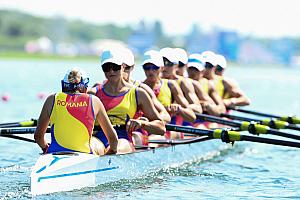Romanian gymnast loses Olympic bronze medal after controversial ruling by judges

Romanian gymnast Ana Bărbosu, who took part in the floor exercise final at the Paris 2024 Olympic Games, lost her spot on the podium after American gymnast Jordan Chiles filed a challenge. Similarly, gymnast Sabrina Maneca-Voinea, who took part in the same event, was penalized by the judges, who pushed her into fifth place, despite a video showing that the mistake they highlighted did not take place.
Ana Bărbosu briefly celebrated winning the bronze medal with a score of 13.700 in the floor exercise. However, the situation changed after American gymnast Jordan Chiles filed a challenge. Chiles claimed she was not awarded points for a move called the Gogean, named after the famous Romanian gymnast Gina Gogean.
The judging panel decided to add 0.100 points to Chiles' score, awarding her the bronze medal and sparking controversy. Pictures show Ana Bărbosu holding the Romanian flag ready to take the podium, then looking in shock at the board after the change in scores.
Gymnastics scoring consists of two separate elements: a difficulty score (D score) and an execution score (E score). The E score is a maximum of 10 points, with judges deducting points for errors such as missteps or slight wobbles on landings. The D score entirely depends on the difficulty of the elements each gymnast performs during their routine, according to G4Media.
During a routine, such as Chiles' floor exercise, judges track each skill or element the gymnast completes. Each element has a specific point value that adds to the D score. After the score is announced, a gymnast's coach, who knows all the planned elements in the routine and their corresponding difficulty score, can choose to challenge the D score by presenting an official "challenge." Essentially, the coach asks why a particular element was not credited, which can sometimes lead to an improved score after the initial announcement.
Chiles' initial D score for her floor exercise on Monday was 5.8, which placed her behind Bărbosu. However, after the routine, her coach filed a challenge. The challenge concerned an element in her routine, named the Gogean, a split leap with a 1.5 turn that was initially not credited by the judges. The D score was increased by a tenth of a point to 5.9, which was enough to award her the bronze medal with a total score of 13.766.
Two other challenges were filed in the final, but neither resulted in changes. Among them was a challenge by another Team Romania participant, Sabrina Maneca-Voinea, who had the same score as Ana but with a lower difficulty score.
Multiple Olympic champion Nadia Comăneci spoke with the head judge after the final to understand why Sabrina Voinea's score was so low. Afterward, she commented on the controversial decision, noting that the difficulty score was crucial in Jordan Chiles' routine.
"I'll tell you what happened, because I spoke with the head judge to understand why Sabrina Voinea was deducted 0.1. They said they had a photo showing a small part of her heel slightly out of bounds, which I did not see," she said. Nevertheless, the star gymnast said that she is proud of the Romanian representatives in the competition.
However, slow-motion footage showed that Voinea did not step outside the mat, and therefore should not have been penalized. Mihai Covaliu, president of the Romanian Olympic Committee, sent a letter in protest to the International Gymnastics Federation, saying that the judges' decision also left her without her rightful bronze medal, TVRInfo pointed out.
Harsher statements came from Romanian sports officials, especially Sabrina Voinea's coach and mother, Camelia Voinea, who argued that Sabrina was wronged. Camelia Voinea also said she intends to appeal the decisions of the judges at the Court of Arbitration for Sport in Lausanne.
In the end, Romanians Ana Maria Bărbosu and Sabrina Maneca-Voinea ended the competition in fourth and fifth, respectively.
The Romanian Gymnastics Federation, however, said that it would file a complaint to get Ana Maria Bărbosu the third place returned to her. "We will fight until we exhaust all legal means," says the president of the Federation, Carmencita Constantin, in an effort for Ana Maria Bărbosu to reclaim her 3rd place at the 2024 Olympic Games, according to Euronews Romania.
The judges’ decisions in the case of the two Romanian gymnasts also sparked reactions from Romanian politicians. Prime minister Marcel Ciolacu said he will not be attending the closing ceremony of the Paris Olympics in protest.
"I have decided not to attend the closing ceremony of the Paris Olympics after the scandalous situation in gymnastics, where our athletes were treated in an dishonorable manner. To withdraw a medal earned through honest effort based on a protest that neither the coaches nor top technicians understand is totally unacceptable,” Ciolacu said on Facebook.
radu@romania-insider.com
(Photo source: Comitetul Olimpic si Sportiv Roman on Facebook)













